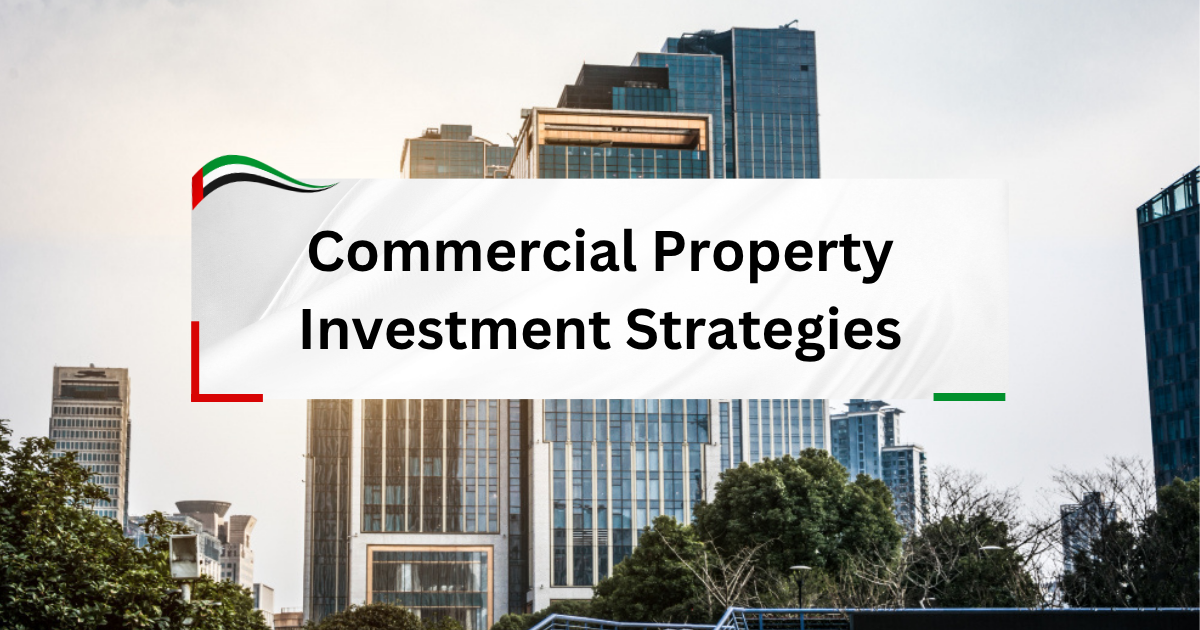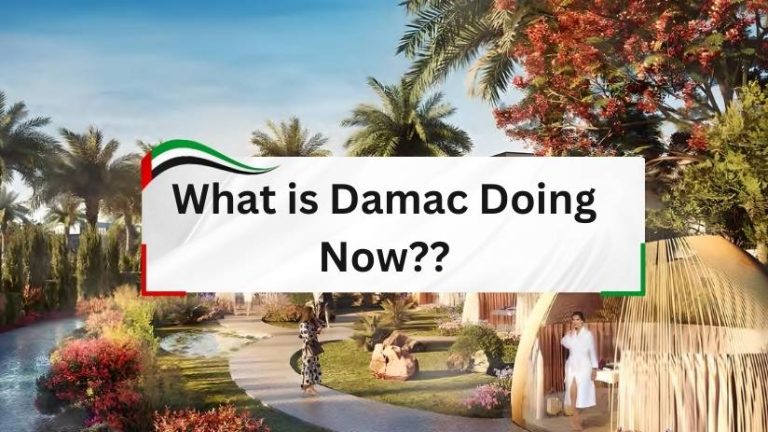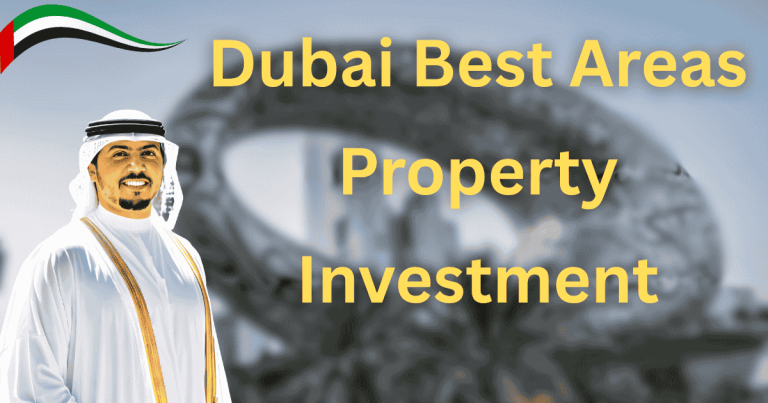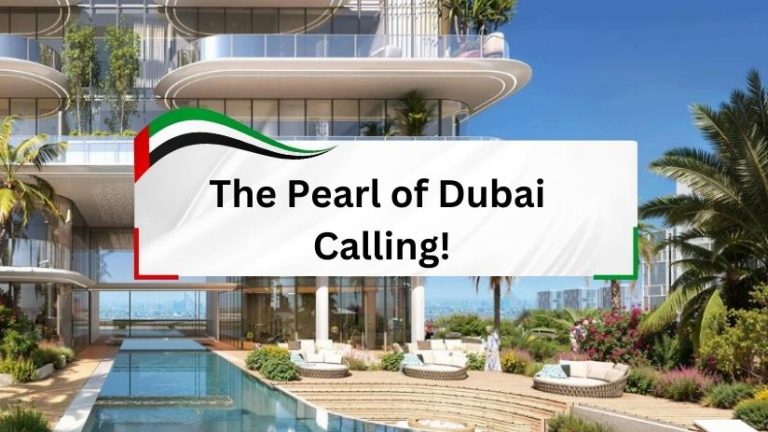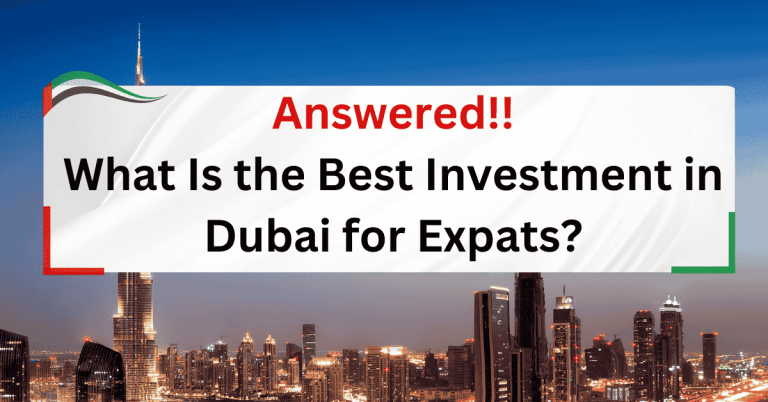Commercial Property Investment Strategies in Dubai
Economic diversification, tourism, and corporate growth make Dubai a top choice for real estate investors. Strategic initiatives include mega-projects (e.g., increased foreign ownership and business-friendly legislation). The legacy of Expo 2020 has strengthened investor interest. Savvy investors are now using multiple commercial property investment strategies. Together with in-depth regional and sector studies, these methods can maximise profits and reduce risk in the rapidly changing UAE.
Advanced Investment Strategies in UAE Commercial Real Estate
Direct Investment (Core, Core-Plus, Value-Add)
Investors with large resources usually seek either classic buy-and-hold or development approaches in premium UAE commercial properties. A ‘core’ buy-and-hold strategy focuses on fully leased, premium real estate, such as Grade-A office towers on Sheikh Zayed Road or major retail outlets, to provide consistent rental income. These assets often have Shariah-compliance and good tenancy, providing somewhat low returns (usually sub-8% cap rates in top markets) but present stability. Core-plus approaches provide little worth in restoring units or prolonging leases. To increase rents even more.
Investing in tourist areas might be very profitable. Sale-and-leaseback is another strategy: companies or investors sell a piece of real estate (e.g., from a fund or REIT) and lease it back on a long-term basis, thereby freeing up capital from a branded hotel or warehouse. These commercial property investment strategies are very profit-generating.
Indirect Investment (REITs and Crowdfunding)
REITs and crowdfunding sites have evolved as powerful vehicles for investors seeking exposure with minimal financial commitments or hands-on management. REITs listed in the UAE hold a diverse portfolio of income-generating properties, funded by the investments of many investors. Particularly noteworthy are Shariah-compliant REITs traded on Nasdaq Dubai, Emirates REIT (CEIC) PLC and ENBD REIT (CEIC) PLC. These REITs generate dividend income from rental properties and trade like equities.
These platforms are licensed by the Dubai Financial Services Authority (DFSA) for free zones, or the Securities & Commodities Authority (SCA) for mainland (onshore) areas.
SmartCrowd by the DFSA
Stake by ADGM
Baytukum by SCA
PRYPCO Blocks, Slice, and a few other platforms.
Top-Performing Commercial Property Sectors
Investors should focus on industries with solid fundamentals. Due to economic development, offices, retail, and industries are growing. This is due to the advanced commercial property investment strategies in Dubai.
Office Space: The demand for new businesses is growing. With occupancy rates of around 94% and 96%, respectively, Dubai and Abu Dhabi today boast some of the highest office occupancy figures worldwide. The DIFC, Business Bay, and Sheikh Zayed Road in Dubai’s top offices saw occupancy above 95% with rental development in the 20–44% range, according to a recent report. Sales activity is also high; Dubai sold AED 6.5 billion in office property sales (33% of all commercial sales), a record amount, in 2024.
Retail (Shopping Malls & High Street): Due to the large capacity of shopping malls, there is great profit in this area. There are more than 18 million visitors in 2024-2025. Malls are fully occupied, and due to demand, rents are also high.
- Retail rents are rising by about 8%
- 1,364 retail property deals in 2024
- Serena Mall is also becoming popular
Industrial & Logistics: Due to the increasing population, industry is also booming. It is mainly due to E-commerce, global trading, and manufacturing.
- Jebel Ali Free Zone, KEZAD, KIZAD, and Dubai Industrial City are the main areas.
- Warehouse rent rises by 13%
- AED 5 billion logistics park is attracting investors’ interest.
- Jebel Ali and Dubai South are hotspots.
These are the key locations that will drive advanced commercial property investment strategies in Dubai.
Conclusion
The United Arab Emirates (UAE) offers a diverse range of commercial real estate investment opportunities. For this purpose, you have to adopt advanced commercial property investment strategies. With great demand and investor-friendly policies, Dubai tops the list. Following closely is Abu Dhabi. It boasts excellent industrial and commercial zones as well as long-term visa advantages. Particularly for those seeking inexpensive entry points, the Northern Emirates, comprising Sharjah, Ras al-Khaimah (RAK), Ajman, and Fujairah, offer hidden treasures. In this quickly expanding area, every investor will find something, whether they are looking at office towers, warehouses, hotels, or shopping malls.
FAQs
1. Where in the UAE should one make investments in commercial real estate?
Particularly in areas such as Business Bay, Downtown, and Jebel Ali, Dubai remains the most popular choice. However, excellent choices are also developing regions, such as Dubai South and Abu Dhabi’s Yas Island.
2. Can foreigners buy commercial real estate in Dubai or Abu Dhabi?
Indeed, both cities have freehold zones where foreign nationals are permitted to own property. Dubai has also developed these areas and simplified the requirements for visitors and investors.
3. What sort of returns can commercial properties in the UAE offer?
Sectoral returns vary. While hospitality and retail generally provide both good rental income and long-term growth, logistics facilities located near ports can yield 7–9%.
4. Who is Abu Nahyan Al nuaimi?
He is the CEO & co-founder of Atlantis Real Estate. He is a passionate expert who has helped over 630 clients worldwide with their investments in Dubai. He is also the co-founder of Al Firdoos Farm in Alain City. He is the ultimate real estate expert in Dubai, fulfilling the needs of investors in the real estate sector.


